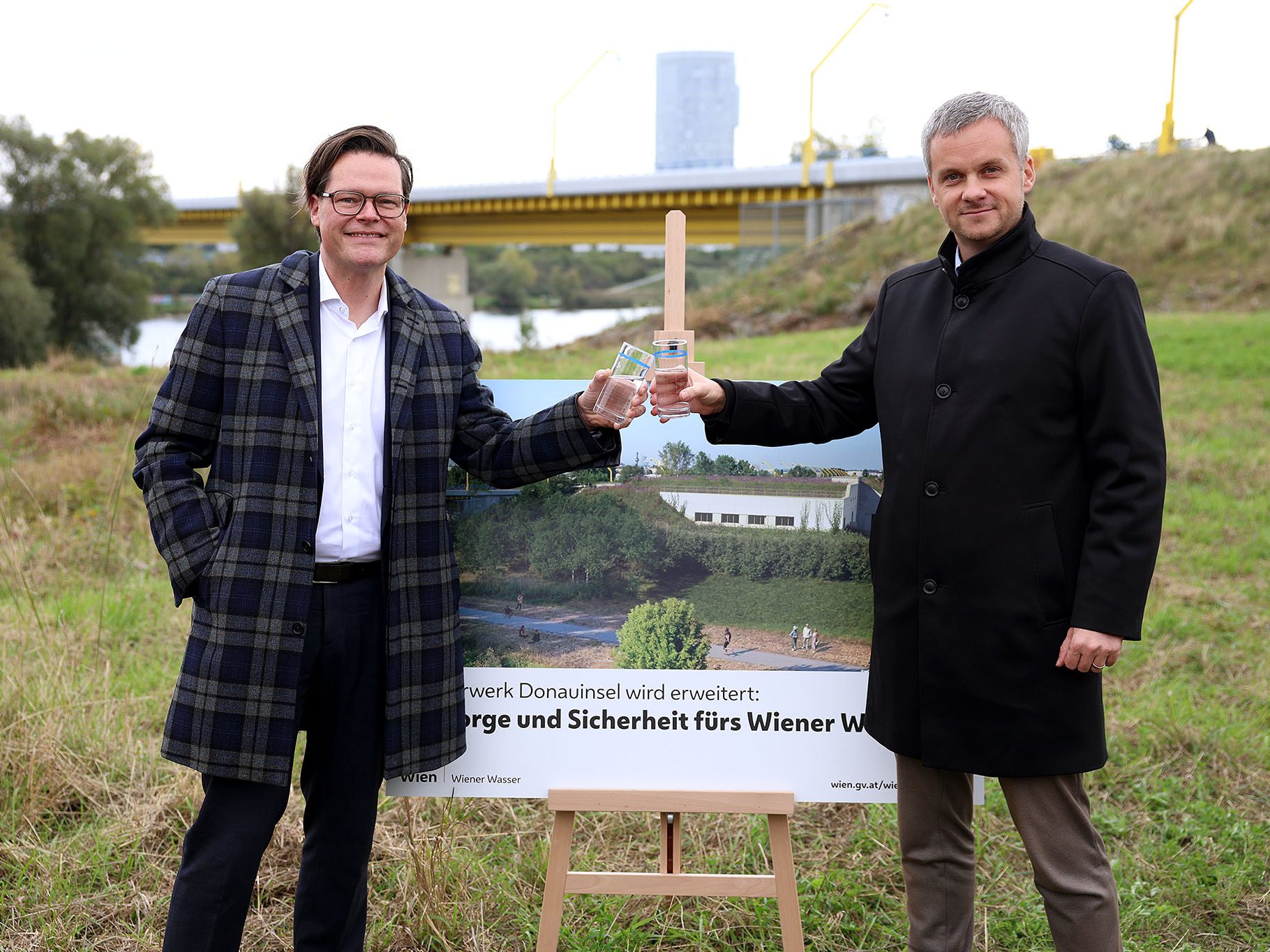A Waterworks is Being Built on the Vienna Danube Island

The facility will be constructed by 2030 between the Nordbrücke and the Steinitzsteg. It is expected to deliver up to 1,000 liters of drinking water per second, as Environmental City Councillor Jürgen Czernohorszky (SPÖ) explained during the presentation of the project on Thursday.
This equates to about 18,000 filled bathtubs per hour, it was calculated. And even though the building will be flanked by the Danube and the New Danube: The liquid will not be drawn from the rivers, but from the ground. The waterworks will be supplied by 17 groundwater wells on the Danube Island and in Nußdorf.
Water Consumption in Vienna is Increasing
The project is intended to guarantee supply security on peak days. "The amount of water we will need in the future will be influenced by population growth and climate change. We can already observe an increase in overall water consumption in Vienna," explained Czernohorszky. According to a forecast by Wiener Wasser, the average demand will increase from the current 400,000 to about 450,000 cubic meters per day by 2050.
Construction start for the Danube Island waterworks is in spring 2026. It includes a treatment plant where the water is filtered multiple times. According to the city, this is done similarly to how mountain spring water is purified. Subsequently, the water is disinfected using UV light. For state-of-the-art treatment, cooperation with universities is also in place.
During the multi-year construction phase, pedestrian and cycling connections on the island will be reorganized. Starting in early October, the towpath on the New Danube side between Georg-Danzer-Steg (U6 bridge) and Nordbrücke will be widened and made flood-proof. For this, the current main path will be closed from next spring and reserved for construction traffic.
Strategy "Vienna Water 2050"
Work is being done on expanding the water supply not only in the city. The supply of mountain spring water is also being intensified as part of the "Vienna Water 2050" strategy. Plans include an additional pipeline from the Höllbach spring in the Hochschwab area. Other projects, such as what the city claims to be the world's largest closed drinking water reservoir in Neusiedl am Steinfeld (municipality of St. Egyden) in the Neunkirchen district, are already being implemented. The annual investments in supply security were today estimated at around 120 million euros.
(APA/Red)
This article has been automatically translated, read the original article here.





